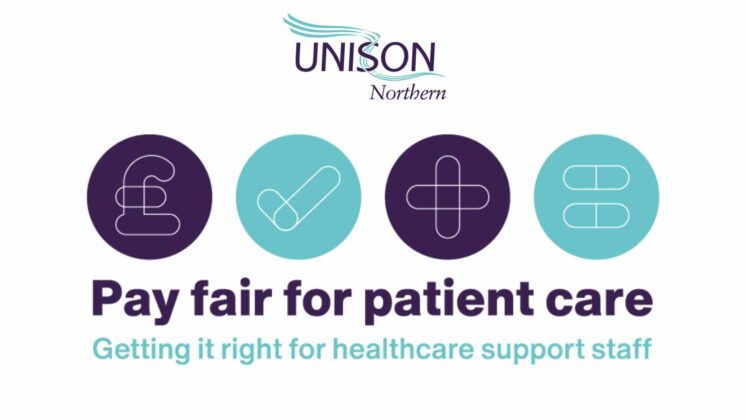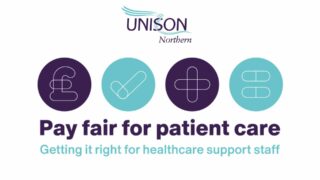Hundreds of healthcare assistants at James Cook University Hospital in Middlesbrough will be holding a rally tomorrow (Thursday) as part of their campaign for fair pay, says UNISON.
The staff, employed by South Tees NHS Trust, say they have been underpaid for their work.
According to NHS guidance, healthcare assistants on salary band 2 should only be providing personal care such as bathing and feeding patients.
However, the support staff are routinely undertaking clinical tasks, such as taking and monitoring blood, performing electrocardiogram tests and inserting cannulas, says UNISON.
The NHS guidance says staff performing these more complex duties should be on salary band 3, which is nearly £2,000 a year more.
UNISON is calling for the health workers to be moved to the higher grade and to receive back pay going back to 2019, depending on how long they have worked at the hospital.
UNISON regional secretary Clare Williams will be one of the speakers at the rally, which starts at 1:30pm at the hospital’s south entrance. At the event, Clare will call on managers at the South Tees NHS Trust to meet the union and settle the dispute to avoid further action, which could include strikes.
Other NHS trusts around the UK are moving healthcare assistants up to the correct salary band and providing appropriate back pay, says UNISON. For example, seven health trusts in Greater Manchester have recently regraded their health support staff and backdated their pay to April 2018.
UNISON Northern regional secretary Clare Williams said: “It is time South Tees NHS Trust followed others’ lead and paid their healthcare assistants fairly.
“Staff are not prepared to have their hard work undervalued. If the trust continues to refuse to pay them properly then the health workers will be left with little option but to consider strike action.
“Managers should do the right thing and avoid risking needless disruption for patients.”



